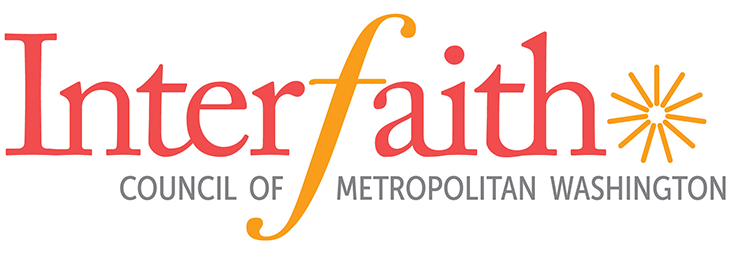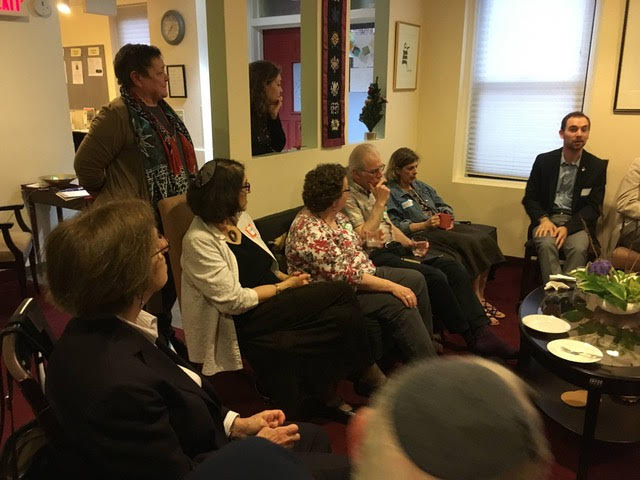The DC Shambhala Center (DCSC) recently hosted From Crisis to Community, an event to inform and educate participants about the challenges faced by political asylum seekers in the Washington Metropolitan Area. A local nonprofit organization, the Asylum Seeker Assistance Project (ASAP) presented their approach to helping asylum seekers overcome obstacles and empower themselves.
The event was inspired by a call in early 2019 from the Interfaith Council of Metropolitan Washington (IFC) for a Day of Unity, inviting faith/ethical communities across the region to plan gatherings with one another to establish connections and explore common concerns. As a member of the IFC board and the Shambhala Center, I reached out to fellow Shambhalian Ira Zukerman, who is also a member of the Shirat HaNefesh (SHN) synagogue in Chevy Chase, to suggest that our two communities collaborate on a gathering. Ira included SHN’s Rabbi Gilah Langner in the conversation, and soon a plan was in the works. Rabbi Gilah, having recently connected with ASAP’s volunteer program, suggested that a program presenting their mission and work might inspire community members to get involved in supporting asylum seekers.
Although 44 countries accept asylum applications, only in the US are asylum seekers denied access to basic services. They may not apply for a work permit until six months after they file their asylum applications; therefore, most asylum seekers must live without income for approximately one year. There is currently a backlog of roughly three-quarters of million asylum applications nationwide; as a result asylum seekers can face separation from their families back home for more than eight years before their cases are resolved. ASAP provides crucial services in our area, but they have capacity to support only about two hundred of the tens of thousands of local asylum seekers.
On the evening of May 8, we convened at the Shambhala Center—first for a social gathering, with an array of refreshments and much lively conversation. Before the formal presentation, Rabbi Gilah offered opening remarks and reminded us of the Jewish faith’s admonition to “welcome the stranger.” Rabbi Gerry Serotta— Executive Director of IFC and Founding Rabbi of SHN—related the mission of IFC and the Day of Unity, reminding us that through our efforts we can lay the foundation for an inclusive, welcoming community in the DMV. Gabe Dayley, Executive Director of the DC Shambhala Center, reflected on the Shambhala vision of creating enlightened society by bringing our spiritual practice out into the world.
Then ASAP staff members Hailey Scatchard and Holly Leon-Lierman, along with an asylum seeker who is both an ASAP client and a volunteer (and who remains unidentified for reasons of security), took center stage to inform us about ASAP and its work. Following a video introduction from founder and executive director Joan Hodges-Wu, the guest speakers shared stories that brought to life the issues faced by people seeking asylum here in the US. They described the support that ASAP provides: social work to to identify emotional and material needs; job training, interviewing practice, and resume-writing assistance; and community engagement to help integrate asylum seekers and increase ASAP’s capacity. The ASAP staff closed by offering several ways that concerned neighbors can lend a hand, including participating in community programs like a community Thanksgiving meal, volunteering for an employment training program, or donating helpful items.
The process of giving up one’s home and settling in a new culture is wrenching and isolating; the Asylum Seeker Assistance Project works to empower those fleeing persecution to rebuild their lives with purpose and dignity. And on a spring evening, this interfaith group learned about some of the ways we can put our ethics into action and be of benefit.
By Jayne Sutton, IFC Board Member and part of the DC Shambhala Center

